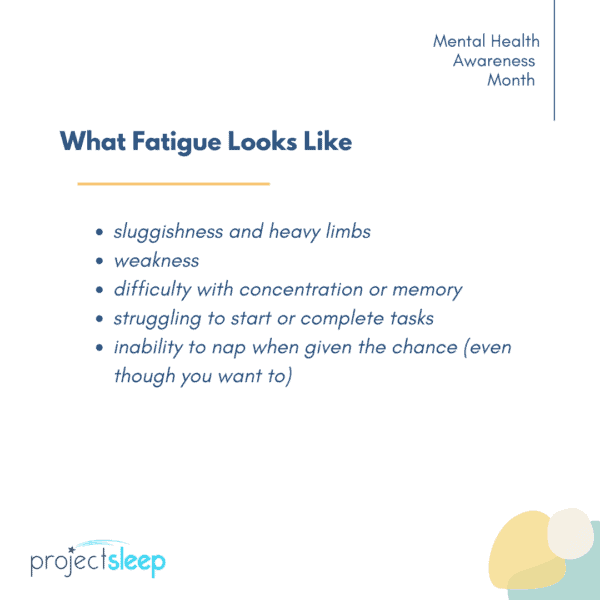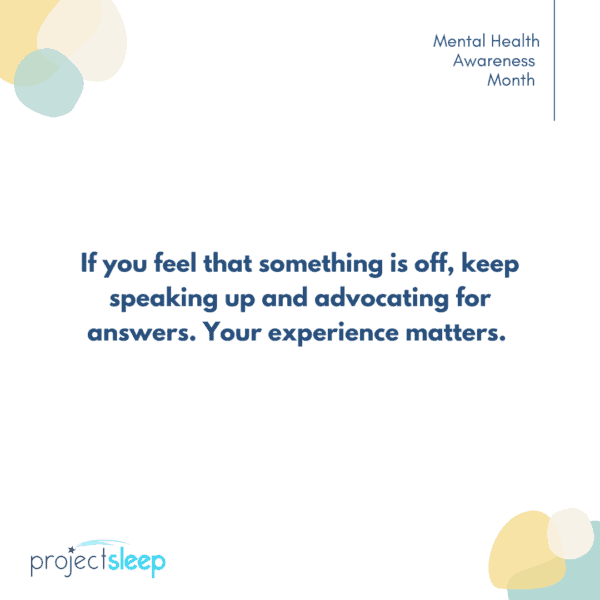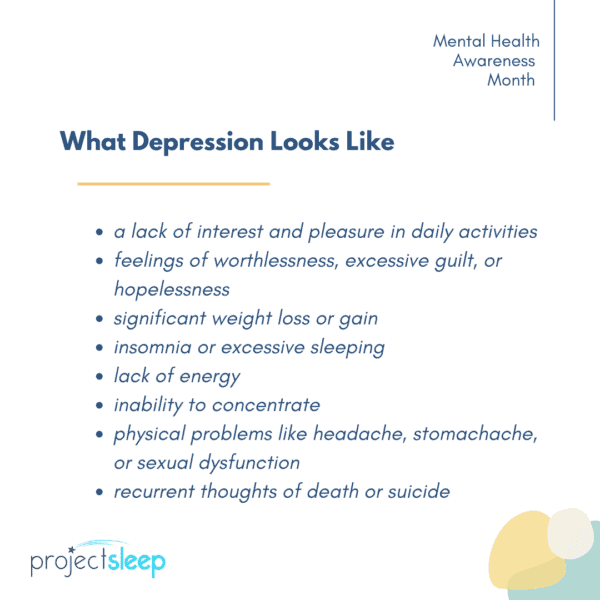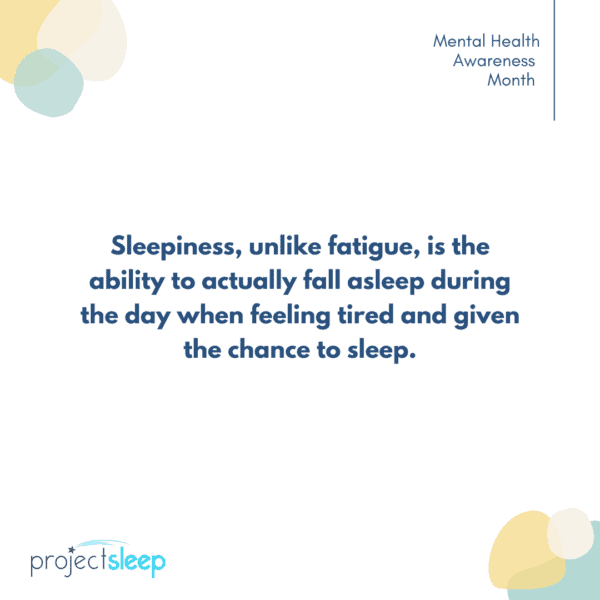 “Why am I always so tired?”
“Why am I always so tired?”
When your energy feels off, it can be hard to know what’s wrong and what to do about it. Feeling sluggish could be a sign of many things including anemia, thyroid issues, a sleep disorder, diabetes, depression, nutritional deficiencies, and so on. You may also wonder, “Will this go away or should I talk to a doctor about it?”
In everyday life, we use various terms interchangeably – feeling tired, exhausted, sleepy, fatigued, sluggish, weighed down, foggy, burnt out, like a zombie, or low-energy. But these terms may have different meanings.
For example, at Project Sleep, we often hear from people with sleep disorders who faced excessive sleepiness for many years before finding an accurate diagnosis of sleep apnea, narcolepsy, or idiopathic hypersomnia. Even when an individual mentions sleepiness to a healthcare provider, it may be easily confused for depression or fatigue.
Sleepiness, fatigue, and depression can all be invisible, sneak into a person’s life, and be difficult to explain to loved ones or doctors.
So what are the key differences between sleepiness, fatigue, and depression? In this post, we break down each to help educate about similarities and differences. Being able to communicate about these symptoms is important to help find an accurate diagnosis, treatment, and a community of people who understand.














